|
Flexible education, marketable skills and empowerment of the marginalized are the three basic elements of the massive poverty alleviation initiative of Dr. Nalini Gangadharan, founder Chairperson of the CAP Foundation. After her Master's Degree in social work from the Madras School of Social Work, Nalini had the opportunity to work closely with the late M.S.S.Nambudiri, Director of Seva Samajam Boys' Home, for nearly three and a half years first as social worker and subsequently as Assistant Director. Nambudiri was a champion of innovative education and skills development of the disadvantaged children and youth to enable them and their families to move out of poverty. Nalini, in later years, expanded these initial experiences into a great socio- economic movement in India and in other countries. As a student of MSSW, I found Nalini as a self-assured person with a purpose in life. In her life mission, she found the most appropriate life partner in Dr.K.R.Gangadharan, who was also an alumnus of MSSW. Gangadharan has a charming smile always on his lips and fast moving pace while walking. They met at Lucas-TVS where Nalini was a trainee under the Personnel Officer Gangadharan. It was the beginning of a satisfying companionship through matrimony. While Nalini expanded her frontiers by opening new horizons for the poor and underserved children and youth,and their families, Gangadharan preferred working with the elderly under the banner of Heritage elder care services at Hyderabad. Dr. Gangadhran rose to global heights in the field of ageing including the Presidentship of the International Federation on Ageing. Both Nalini and Gangadharan have been invited by the central and state gover nments to be in various panels. Poor nima and Pavithra, their dynamic daughters, are carrying forward the elder care activities launched by their father. Poornima's focus is on medical centre and home care services for the elderly, whereas Pavithra looks after the award winning assisted living programme called Kshethra. A blessed family whose family mission is service to humanity.
Dr.T.K.Nair Former Professor of Social Work and a Former Principal, Madras School of Social Work.
My association with Dr. Ruth Manorama dates back to 1973, when my former student R.S.Anbarasan brought Ruth and her classmate Karuna David to introduce me to them . It was at the MSSW. Slowly our friendship became more informal because of the affable nature of Ruth and Karuna. They both were also regular visitors to my home. I always felt that Ruth would be a mass leader one day as she carried herself with immense self-assurance even as a student.Sh had definite views on all social issues and she articulated her points of opinion with conviction. Ruth has been in the centre stage of Dalit activism and empowerment of Dalit women for nearly four decades. Her spheres of action extend beyond national boundaries and she is an active figure in the global action for liberation of the oppressed. The prestigious Right Livelihood Award was the confirmation of the global recognition of her relentless struggle for the liberation of the Dalits and more so the Dalit women. I am sure the government of India will soon honour her with suitable Padma awards. The Nobel Prize for Peace one day will be a worthy stimulus to the optimism of Ruth Manorama in the pursuit of her goal.
Dr.T.K.Nair Professor of social work and Former Principal, MSSW. (A Joint Programme of Shri Siddaganga Math/ PANACEA Hospital/ CTPHCF (CAMHADD Trisector Preventive Health Care Foundation)/ for 10,000 School Children of Siddaganga Math- Tumkur (Karnataka State, India) in collaboration with Tri Sector Partners) Dear,
Dr. C.Jayanna Chairman & managing Director, Panacea Hospital, Bangalore I am happy to go through your initiative regarding the healthcare programme for the children of Sree Siddaganga residential Primary school, Sri Siddalingeswara High school and Sri Basaveshwara High School. As mentioned in your letter, the children of today in general and those from rural areas in particular deserve a safer, fairer and healthier world. Therefore, your attempt to develop preventive healthcare programme in collaboration with Tri Sector preventive healthcare Foundation and various other associates in really laudable. As the programme is going to benefit the 9000 children of Siddaganga Gurukula who are essentially from rural background, the math is happy to associate itself with you and your group, who are working for this noble cause. With best wishes, Sree Sivakumara Swamigalu Old age is a closing period in life. It is a period when people move away from previous, more desirable periods or times of usefulness. As people move away from the earlier periods of their lives, they often look back on them usually regretting and tend to live in the past, ignoring the future as much as possible (Kuypers, 1972).
Abstract
In any society the elderly are the most vulnerable and high risk groups in terms of health status. After a certain age, health problems begin to crop up leading to losing control over one’s body and mind even not recognizing own family owing to Alzheimer. It is then children began to see their parents as a burden. It is these parents who at times wander out of their homes or are thrown out. Some leave their old parents or grandparents in old-age homes and don’t even come to visit them. They are prone to several ailments with increase in their age. Some of these ailments may be chronic. But the physical and financial resources for treatment of such diseases are limited with regard to older persons. Keeping in view of this, the present study analyzes the chronic ailments by which the senior citizens (old age people) suffering and their source for treatment. For the present study random sampling method is applied for the selection of the sample. The study also discusses the old age population trends at global, national and state level. Abstract
Women Empowerment refers to the strengthening of the social, economic and educational powers as well as status of women. It refers to an environment where there is no gender bias for women and has equal rights of them in community, society and workplaces. According to the World Bank out of total population female percentage in India was last measured at 48.16 in 2014.They have every right to be treated equally with men in every sphere of life and society. The empowerment of women would result in overall development of society both at micro and macro level. Active participation of women in economic activities and decision making would contribute towards overall human as well as economic development. “Empowering Women” means to authorize power or increase the overall participation, contribution, status and prestige of women in every spheres of life. Empowerment of women would result in better, competitive, healthy and more developed society. When women contribute equally along with men for the benefit of society, the world would surely become a better place to live. Today more and more females are studying in schools and colleges and also go abroad for higher studies. Women are increasingly commanding better position in the society. The Govt. of India has taken different measures to empower the women in different ways from time to time since our independence. This paper aims at to investigate these measures in terms of their implementation and effectiveness with respect to the objectives of these schemes and programmes taken up by the Indian Govt. for uplifting the status of the women in the society. This is a descriptive study based on the secondary sources of data. Key words: Women, Empowerment, Government “Can SDG’S Achieve What Millennium Development Goals Could Not? Rethinking from Global Context”9/4/2017 Abstract:
The quest for a better world is an ever-prevalent dream. We live in an age of unprecedented prosperity, but also unspeakable deprivation around the world. Equitable distribution of resources is the need of the day. Many programmes and policies are formulated in this direction. The year 2016 marks an end of the era of one such programme: The Millennium Development Goals (MDGs), which drove the global development agenda since the new millennium. The MDGs have now paved the way for another set of goals that the world will strive to achieve over the next fifteen years: The Sustainable Development Goals (SDGs). SDG’s are an outcome of the conversation on the intersectionality between economic, social and environmental change. These ambitious and aspirational SDGs call for significant rethinking in development processes across the world. this paper is an attempt to reflect on the MDG era and consider the possible way forward for achieving the ambitious and inclusive agenda of SDGs while reflecting upon the possible role of social workers in making this viable. The emerging relationship between the policy makers and the masses brought about by the mediation of the social worker epitomises the fundamental ongoing changes This paper is an attempt to trace the lofty development goals of the SDG’s juxtaposed against the MDG’s while delineating, the potential significance of the dynamic social relationships between various stakeholders. Keywords: MDG’s, SDG’s, Development Goals, Social Workers, Stakeholders, Role. Abstract
Background: The growing trend of alcohol and substance abuse among the adolescents and students community is becoming a serious and treble issue. Glorification of alcohol and drugs in modern life has made the issue more pathetic. Now a day’s people start experimenting with the alcohol and other illicit in very little age. Studies found prevalent use of alcohol among students; even those not used yet started have a very positive attitude towards alcohol and substances. Abstract
Intervention fieldwork in social work education is exceptionally practiced at undergraduate and postgraduate levels in India. The conventional method of fieldwork training in the institutional setup is largely found. Thereby, there is a lacking in the independent practice of social work by pupils of social work. Hence, the knowledge, skills, aptitude and value orientation obtained in social work training has hardly addressed the Interventional needs of the society. In other words, professional socialisation of social work students is misleading the very purpose of social work education in catering the development needs of society. There is also a need of intervention research in order to test and re-test the significance of social work theories, methods and knowledge. In Indian context, there is a paucity of indigenous literature on social work as a consequence of conventional method of fieldwork training and the dearth of intervention research. This has a bearing on establishing social work as a profession and seeking social recognition in India. The paper attempts to argue the importance of intervention fieldwork in social work education in order to develop competent social work professionals in addressing the fast changing and complex issues of society. The paper is based on a case study of women self help group consisting 20 economically poor members formed by a local NGO in Tippu Sultan Nagar Slum in the city of Vijayapura. Intervention field work has resulted in a change in numeracy and functional literacy from (10 percent) to (90 percent) and documentation skills from (5 percent) to (85 percent). The paper illustrates the components and process of intervention fieldwork that can be adopted in the schools of social work to strengthen social work education in order to develop a cadre of competent professional social workers. Key Words: Intervention Fieldwork, Socialisation of Social Work Education, Teaching Social Work Practice. |
Categories
All
Social Work Learning Academy50,000 HR PROFESSIONALS ARE CONNECTED THROUGH OUR NIRATHANKA HR GROUPS.
YOU CAN ALSO JOIN AND PARTICIPATE IN OUR GROUP DISCUSSIONS. MHR LEARNING ACADEMYGet it on Google Play store
|
SITE MAP
SiteTRAININGJOB |
HR SERVICESOTHER SERVICESnIRATHANKA CITIZENS CONNECT |
NIRATHANKAPOSHOUR OTHER WEBSITESSubscribe |
MHR LEARNING ACADEMY
50,000 HR AND SOCIAL WORK PROFESSIONALS ARE CONNECTED THROUGH OUR NIRATHANKA HR GROUPS.
YOU CAN ALSO JOIN AND PARTICIPATE IN OUR GROUP DISCUSSIONS.
YOU CAN ALSO JOIN AND PARTICIPATE IN OUR GROUP DISCUSSIONS.
|
|

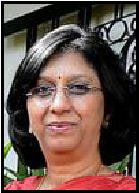
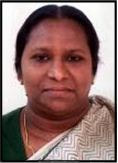
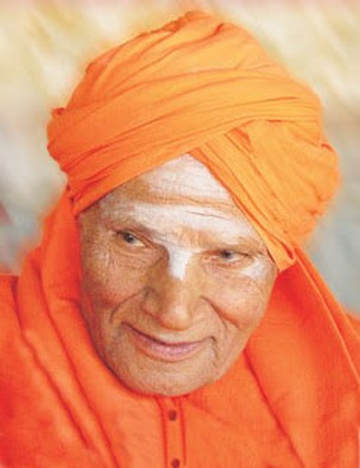
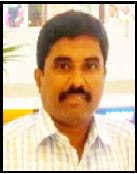
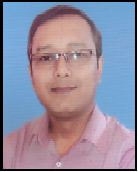
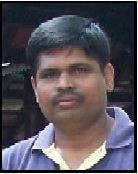
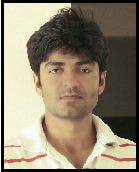
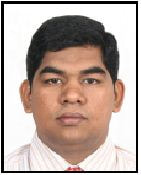
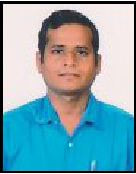





 RSS Feed
RSS Feed





